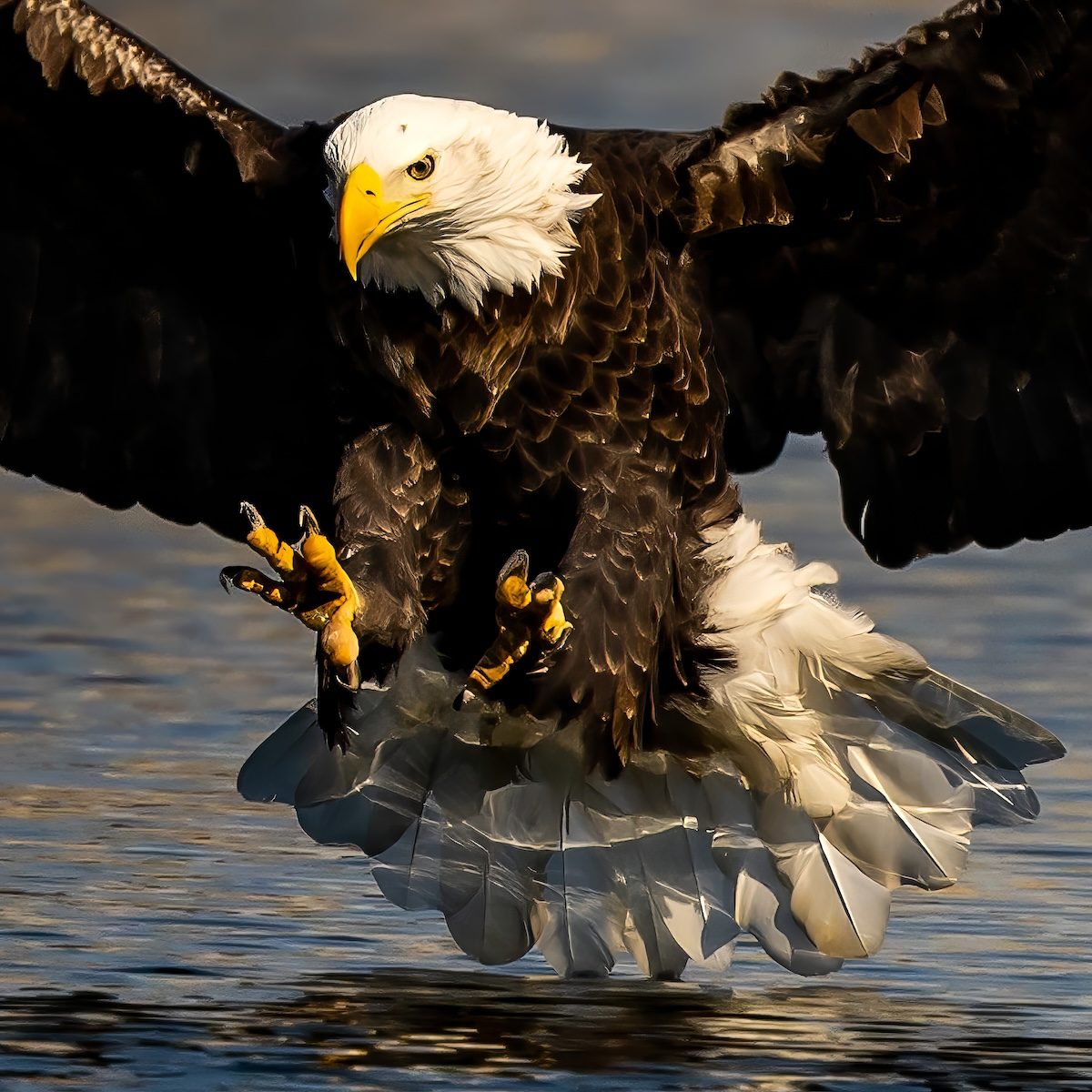Avian influenza has been in the headlines lately — but what effect has bird flu had on the bald eagle population? We asked an expert.

Is Bird Flu a Threat to Bald Eagles?

If you feed or watch birds — or even if you just monitor egg prices at the grocery store — you’ve probably heard buzz about avian influenza. Otherwise known as ‘bird flu,’ avian flu poses a very real risk to birds’ health, particularly waterfowl and poultry. With that said, bird flu can also be a risk for raptors. Here’s why bird flu poses a problem for the bald eagle, one of America’s most beloved birds of prey.
On This Page
Initial Bird Flu Concerns for Bald Eagles

The first major highly pathogenic avian flu outbreak in North America began in late 2021. Even then, scientists noticed a marked effect on eagle populations.
Dr. Nicole Nemeth, the head of Southeastern Cooperative Wildlife Disease Study diagnostic service and an associate professor with the University of Georgia’s College of Veterinary Medicine, remembers the drastic changes she saw in deceased birds. “They had devastating histories, like they fell from a tree,” she says. “Other ones, one of the pair disappeared, and then the second adult disappeared, and then the chicks were found dead.”
Initially, Nicole says that led to a lot of concern. Nest production was down in Georgia. Anecdotal reports seemed to agree that the flu affected eagles throughout the country and up to Alaska. “It’s a very bad disease in eagles and other raptors,” Nicole says.
Because raptors often eat waterfowl that have contracted avian flu, they can get sick as well. From there, an infection can spread through a nest.
Here’s what you need to know about other wild bird diseases.
Bird Flu Is an Endemic Problem

Similarly to how humans are now dealing with the continuing presence of COVID-19, Nicole says bald eagles, and bird populations in general, are likely to deal with endemic avian flu. “It’s just like with people — COVID is here now, and there’s going to be seasonal peaks and troughs,” she says. “It’s a fair comparison in terms of it settling in, and we don’t know the long-term patterns for sure, but it’s just here.”
She also points out that unlike the response to the coronavirus pandemic in humans, it’s not necessarily reasonable to develop an avian flu vaccine and distribute it to every bird. “There’s really no way to stop the spread, and there’s really no way to manage it in the environment because it does well in water,” she says. “It’s shed in birds’ secretions and in their tissues, so when other birds eat them, they get it.”
Her greatest concern is for younger birds who have never been exposed to the virus, as she believes they could be more susceptible to it.
Learn fascinating bald eagle facts.
Reasons for Optimism

With that said, even though avian flu could become a yearly issue for eagles and vaccines aren’t a reasonable solution, Nicole has reasons for optimism.
She says researchers Rebecca Poulson and David Stallknecht made progress in identifying antibodies within birds that survived the infection, meaning that the eagles built up resistance to it and should be protected from repeat infections. “We know there are survivors, which is helpful,” she says.
And despite the challenges posed by the flu and other issues like habitat loss and pollution, bald eagle populations have increased in some states like New Jersey, which, as of January 2025, has de-listed them as endangered.
What to Do If You See Sick or Dead Birds
Report sick or dead birds to your state wildlife agency or local agricultural extension agent. You can also contact the U.S. Department of Agriculture’s Animal and Plant Health Inspection Service Veterinary Services toll-free at 1-866-536-7593.
Next, learn how to identify a golden eagle.
About the Expert
Nicole Nemeth is the head of Southeastern Cooperative Wildlife Disease Study diagnostic service and an associate professor with the University of Georgia’s College of Veterinary Medicine. Her research focus includes studying the effects of disease on wildlife, including birds, to aid conservation efforts.




















